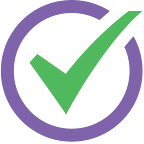The Anatomy Of A Behavioral Interview
Behavioral interviews, typically lasting up to 30 minutes, have long been a standard component of the interview process for all types of job seekers hoping to land their dream job.
A behavioral interview is anytime somebody asks you to talk about yourself in order to learn whether you have the required skills for a role and will be a good cultural fit for the company.
These interviews occur to some degree within every type of interview. The most common behavioral interviews include:
Human Resources (HR) Phone Screen
At many companies, the HR phone screen is the first step in the interview process following the resume screen. You’ll typically speak with a recruiter who will ask you to walk them through your resume and speak about your background. The goal of this interview is to demonstrate to the recruiter that you meet the necessary skill requirements for the job and that you can effectively communicate about your experiences.
Culture Fit Interview
The culture fit interview typically takes place as one evaluation within a series of interviews during an onsite. During the culture fit interview, you’ll be interviewed by a member of the team you’re applying to, which is a chance for other team members to get to know the candidate. The goal is to demonstrate that you have solid communication skills and will be a likable and skilled team member.
Situational Interview
In this type of behavioral interview, you’ll be asked to describe a problem you encountered and how you approached the given challenge. The goal of this interview is to see how candidates would tackle a structured problem and whether their attitude and process aligns with that of the company.
It’s important to remember that interviewing is a skill of its own: even the best candidates struggle to communicate effectively under pressure within an interview setting.
Mock interviews are an essential tool for preparing for the pressures of a live interview. On Pramp, you’ll do back-to-back interview sessions serving as both the interviewer and the interviewee, with a fellow job seeker.
Not only will you get to practice verbally explaining your personal narrative, but you’ll also get the chance to step into the shoes of the interviewer and evaluate a peer’s pitch. Practicing the role of an interviewer will help you gain invaluable insights into how you’ll be evaluated in a live interview.
From analyzing more than 100,000 interviews on Pramp, we’ve witnessed dramatic improvements in performance from a user’s first mock interview to their tenth, and beyond. Completing mock interviews on Pramp will help you overcome difficulties in communicating, reasoning, and putting your best foot forward during behavioral interviews.
Persistence, repetition, and consistency will be the key factors in determining a successful outcome for your interview preparation process. As with many other things in life, practice makes perfect; and for that, you have Pramp!
Additional Resources
- Database of Behavioral Interview Questions — Practice behavioral interview questions with Exponent’s database of recently asked questions, including full video answers.
- What Is the STAR Method? How to Use It in Interviews — A guide on the STAR Method, one of the most effective frameworks for answering behavioral interview questions.
- How to Answer Amazon’s Behavioral Interview Questions (Guide) — A guide on answering behavioral interview questions at Amazon and how to align answers with the company’s hugely important Leadership Principles.
- The Secret to Answering Behavioral Interviews — A guide on how to prepare answers to behavioral questions by Lori Bumgarner, a career coach at paNash
- Hack Campus’ Guide to Technical Interviews — A guide on how to tackle technical and behavioral interview questions by HackCampus
- How to Talk About Yourself in an Interview — A guide on how to answer questions about your previous technical projects by Nick Larsen, Principal Data Engineer at Stack Overflow
